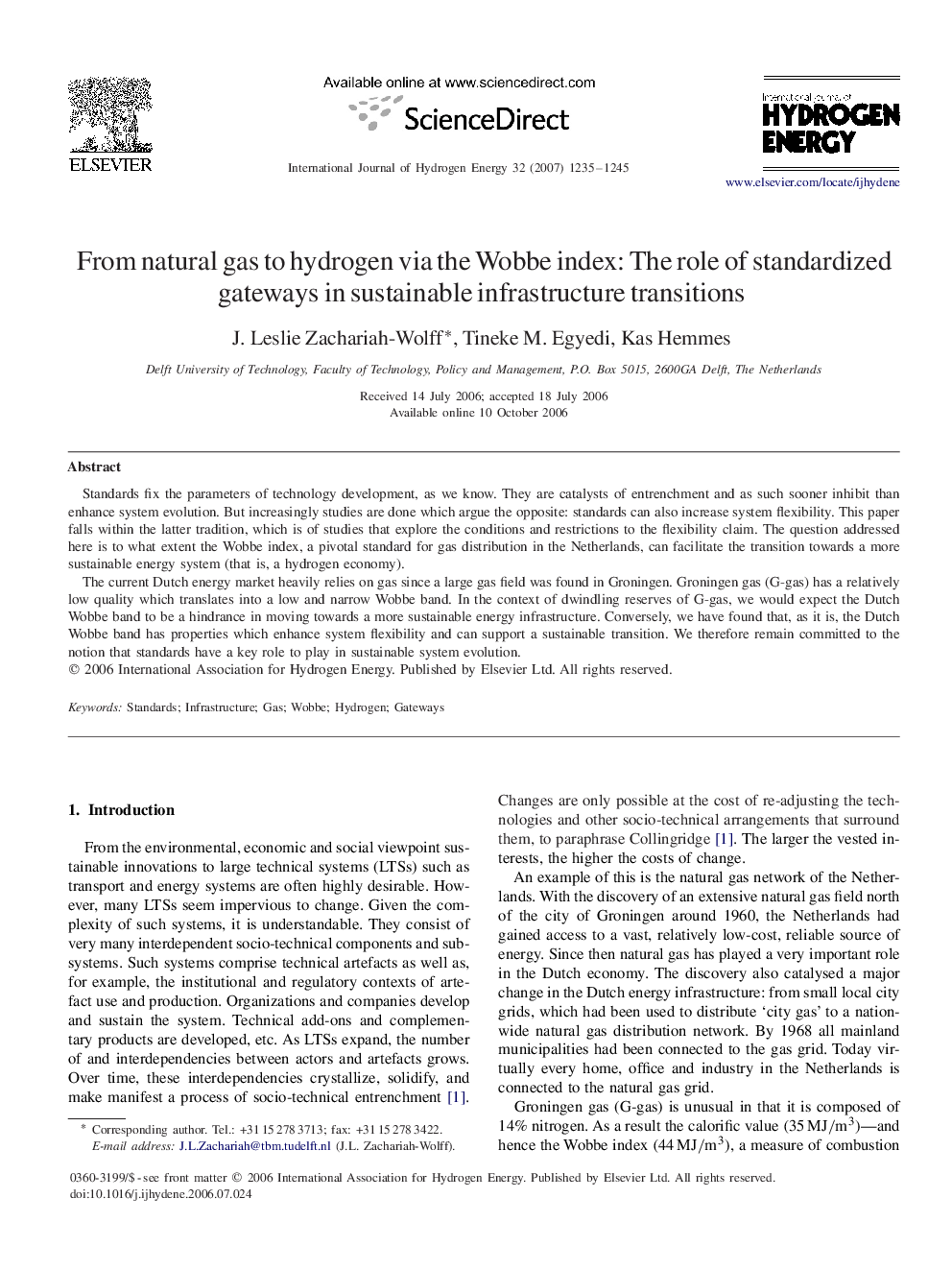| Article ID | Journal | Published Year | Pages | File Type |
|---|---|---|---|---|
| 1275158 | International Journal of Hydrogen Energy | 2007 | 11 Pages |
Standards fix the parameters of technology development, as we know. They are catalysts of entrenchment and as such sooner inhibit than enhance system evolution. But increasingly studies are done which argue the opposite: standards can also increase system flexibility. This paper falls within the latter tradition, which is of studies that explore the conditions and restrictions to the flexibility claim. The question addressed here is to what extent the Wobbe index, a pivotal standard for gas distribution in the Netherlands, can facilitate the transition towards a more sustainable energy system (that is, a hydrogen economy).The current Dutch energy market heavily relies on gas since a large gas field was found in Groningen. Groningen gas (G-gas) has a relatively low quality which translates into a low and narrow Wobbe band. In the context of dwindling reserves of G-gas, we would expect the Dutch Wobbe band to be a hindrance in moving towards a more sustainable energy infrastructure. Conversely, we have found that, as it is, the Dutch Wobbe band has properties which enhance system flexibility and can support a sustainable transition. We therefore remain committed to the notion that standards have a key role to play in sustainable system evolution.
